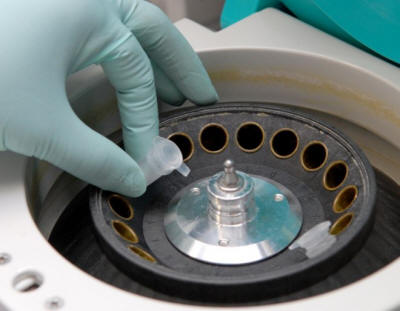|
from Wired Website
DARPA is looking to re-write the
laws of evolution to the military’s advantage, creating “synthetic
organisms” that can live forever - or can be killed with the flick
of a molecular switch.
As part of its budget for the next year, DARPA is investing $6 million into a project called BioDesign, with the goal of eliminating,
The plan would assemble the latest bio-tech knowledge to come up with living, breathing creatures that are genetically engineered to,
DARPA wants the organisms to be fortified with molecules that bolster cell resistance to death, so that the lab-monsters can,
Of course, DARPA’s got to prevent the super-species from being swayed to do enemy work - so they’ll encode loyalty right into DNA, by developing genetically programmed locks to create “tamper proof” cells.
Plus, the synthetic organism will be traceable, using some kind of DNA manipulation, “similar to a serial number on a handgun.”
And if that doesn’t work, don’t worry. In case DARPA’s plan somehow goes horribly awry, they’re also tossing in a last-resort, genetically-coded kill switch:
The project comes as DARPA also plans to throw $20 million into a new synthetic biology program, and $7.5 million into,
Of course, DARPA’s up against some vexing, fundamental laws of nature - not to mention bioethics - as they embark on the lab beast program.
First, they might want to rethink the idea of evolution as a random series of events, says NYU biology professor David Fitch.
Even if DARPA manages to overcome the inherent intelligence of evolutionary processes, overcoming inevitable death can be tricky.
Just ask all the other research teams
who’ve made stabs at it, trying everything from cell starvation to
hormone treatments.
Gene therapy, where artificial
genes are inserted into an organism to boost cell life, are the
latest and greatest in life-extension science, but they’ve only been
proven to
extend lifespan by 20 percent in rats.
Synthetic biology researchers are already facing the same questions, as a 2009 summary from the Synthetic Biology Project reports:
Even expert molecular geneticists don’t know what to make of the project.
Either that, or they’re scared DARPA might sic a bio-bot on them.
|

